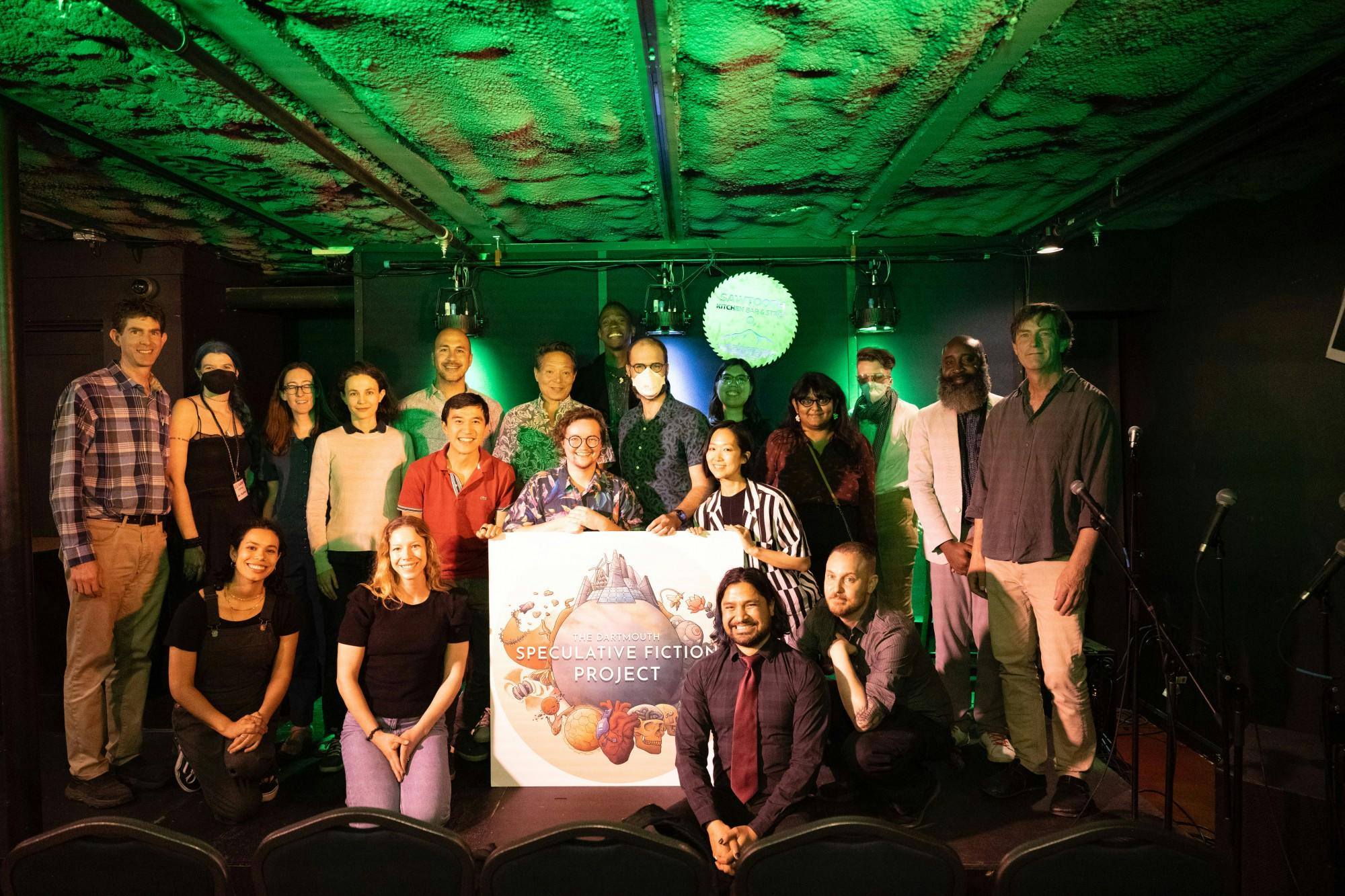From April 13 to 16, speculative fiction authors from around the country came to Hanover to participate in the Dartmouth Speculative Fiction Project, a series of events which included interdisciplinary activities between visiting authors and Dartmouth faculty, as well as readings and panel discussions open to the public. The project aimed to foster collaboration between authors and Dartmouth faculty – with a focus on designing stories rooted in scientific research – and addressed the present and future of the speculative fiction genre.
The project was co-organized by engineering professor Solomon Diamond, English professor Rebecca Clark, the Design Initiative at Dartmouth program manager Paula Olson, Hugo award-winning speculative fiction editor Liz Gorinsky and author and former visiting film and media studies professor Sharang Biswas Th’13.
According to Hugo and Nebula awards finalist Nibedita Sen, speculative fiction is a general term that provokes valuable questions.
“The term ‘speculative fiction’ … works as an umbrella term: It is fiction which imagines things that do not currently exist, things that may come into being through science or through magic,” Sen said. “It could be advancement, or it could be, ‘What if we went backwards? What if we stepped to the side?’ It could be a different dimension, a different timestream.”
In a Q&A panel on April 15, some authors touched on the exchange of knowledge that occurs between scientific researchers and speculative fiction writers. Author K.M. Szpara said he believes the future of speculative fiction will become increasingly interdisciplinary and collaborative.
Nebula award-winning author Sam J. Miller said we should reframe one stereotype about fiction — that it is dismissive of reality’s problems — and instead view its creation of a world without societal problems as proof of the possibility that our society could exist without them.
“It is as simple as, ‘ … And then the housing crisis is over … And then all the people standing in the way of progress are gone.’” Miller said.
Calvin George ’24, who attended the Q&A, said they were intrigued by Miller’s concept of speculative fiction as a tool for social change.
“It was really interesting to hear from these authors [about] how imagining worlds where a huge problem like climate change is gone can actually help us solve those problems by giving us a sense of hope that they are not absolute or inevitable,” George said.
Sen said she views fiction as an important lens through which we can better understand the reality of our problems.
“A lot of people view escapism as a form of writing that is less than, but I don't believe in that. Like Tolkien said: Is it not a prisoner's duty to try to escape? Fiction is the spoonful of sugar that helps the truth go down,” Sen said.
Sen said this belief manifested in her own writing following the results of the 2016 presidential election, when she pivoted into the realm of horror as a form of catharsis.
“[In 2016,] people like me were being viewed as monsters, so I decided, ‘Well, I will show you what a monster really is,’” Sen said.
Looking to the future of speculative fiction, teacher, linguist and author Rob Cameron points to the genre’s growth over the past few decades from a niche, isolated faction of enthusiasts to a universal mode of entertainment.
“With the popularization of science fiction through film, especially Marvel, ‘geek culture’ has become much more expansive — you do not have to be a geek to enjoy it,” Cameron said. “At the same time, authors’ expectations of their readers have changed with these new mediums: Are people really going to sit down and read this book? This kind of thinking sparks novel ideas like ‘choose your own adventure’ narratives, comic books, video games and more.”
According to Biswas, the Speculative Fiction Project came to life when he pitched the idea of centering speculative fiction around scholarship at Dartmouth to Diamond. When selecting the authors for the panel, Biswas shared that the organizers primarily aimed to represent diversity in both background and writing experience.
“If you’re claiming to do a project that looks at the future of humanity, you need to represent diverse perspectives,” he said.
Biswas added that if the project were to happen again, he hopes it can bring together an even more diverse group of people with more funding.
“In the future, with better channels of funding, we hope to have more geographic diversity and be able to bring in international authors,” Biswas said.
The Speculative Fiction Project will continue as authors workshop their stories with their research partners. These works of fiction will be presented at a Dartmouth symposium in June and will subsequently be synthesized into an anthology in Lightspeed Magazine next year.
According to Clark, students will be invited to submit their own stories and up to four of them will be chosen and featured in the professional collection.




